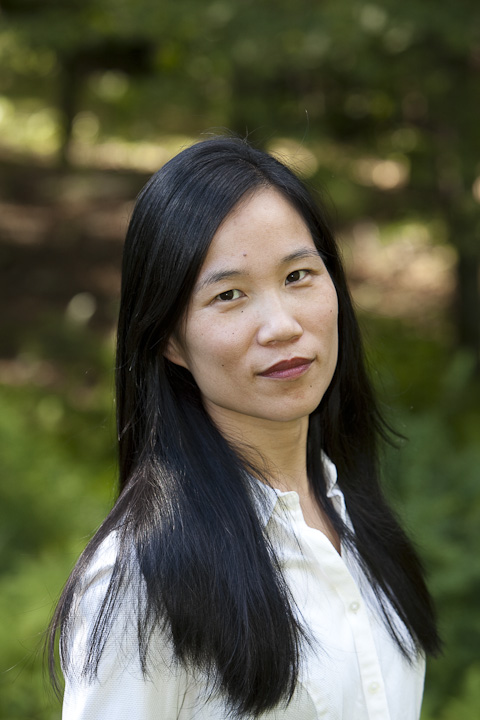04 May / Author Interview: Sonya Chung [in Bookslut]

 By the time I actually met Sonya Chung, debut novelist of Long for This World, which hit shelves in March, I was already a groupie. Long was one of those suddenly-surprising-out-of-nowhere books that make you gasp. A publicist sent it to me initially and it landed high up on my to-read pile – truth be told, most likely because I recognized her name as Korean. A few weeks later, another copy arrived, sent by my Library Journal editor for review.
By the time I actually met Sonya Chung, debut novelist of Long for This World, which hit shelves in March, I was already a groupie. Long was one of those suddenly-surprising-out-of-nowhere books that make you gasp. A publicist sent it to me initially and it landed high up on my to-read pile – truth be told, most likely because I recognized her name as Korean. A few weeks later, another copy arrived, sent by my Library Journal editor for review.
Being such a breathtaking read, Long proved to be my first-ever “starred review” for LJ. This multilayered story of two brothers – one Korean, the other who chooses to become Korean American – and their scattered families whose lives converge in the perfectly blended east/west house on a faraway Korean island is, in a word, unforgettable. And how flattered am I that I made my YouTube debut with a quote from that review which ends Chung’s book trailer for Long?
Weeks after filing the review, another copy of Long arrived at my Smithsonian office. This time, it was sent by Chung herself, with a lovely note about “friends” who had recommended that I might be interested in the title … and in another moment of how-tiny-the-world-is, Chung and I learned we have quite a few people in common. So finally meeting in livetime in New York City was not without a sense of instant recognition. We wandered along the Hudson, talking about growing up less than 10 miles from each other, albeit I was long gone while she was still playing hopscotch during recess. We shared too many of the at-least-we-can-laugh-now stories of our immigrant Korean parents.
She confessed she was a misanthrope at heart, taking long breaks from humanity in her secluded farmhouse far from the city. But she’s also a people-watcher, drawn to “those interesting, strange, and complex characters,” some she knows, some she observes from afar. She does not, however, put her friends into her stories … although she does sometimes create composites of them. And about becoming that weird lady with the dog … read on …
Even though it seems you burst forth a fully formed writer, were you always?
I came out of college not knowing really what to do with myself, but somewhat oriented toward “doing good” on the planet. I’d done some internships with nonprofits but realized that I didn’t much have the personality for activism or social work; so I took that writing skill of mine and fell into grant writing, which evolved into all kinds of marketing/fundraising/organizational management for nonprofits. I worked with/for some remarkable, heroic people (all still good friends); but truth be told, I really disliked the work I was doing, although I did it for almost 15 years. I feel like I’m “on the wagon” right now – haven’t done grant writing or fundraising work in almost two years.
Your devoted readers will work hard to keep you on the straight and narrow! So why fiction writing?
It’s actually a hard question for me to answer. I am a late bloomer, I didn’t start writing fiction seriously until I was already in an MFA program; and if I’m brutally honest, I’m not sure how “seriously” I wrote even while in that program. In hindsight, I would say that writing – that is, putting words together to express ideas – always came easily to me; I felt at home in words. In my 20s, I had a vague though nagging sense (as many do) that I might be an artist. So I put those two things together, I started to walk down that road, without much idea of how to do it or how it worked. It wasn’t until I was well into writing Long for This World that I started to think I was in fact a writer; that writing was my work, that I was most alive and using all my strongest intellectual and emotional faculties – all cylinders firing, so to speak – when I was writing fiction. [… click here for more]
Author interview: Feature: “An Interview with Sonya Chung,” Bookslut.com, May 2010
Readers: Adult

What a fascinating lady, I will make sure to pick up her book.
I promise you won’t be disappointed!